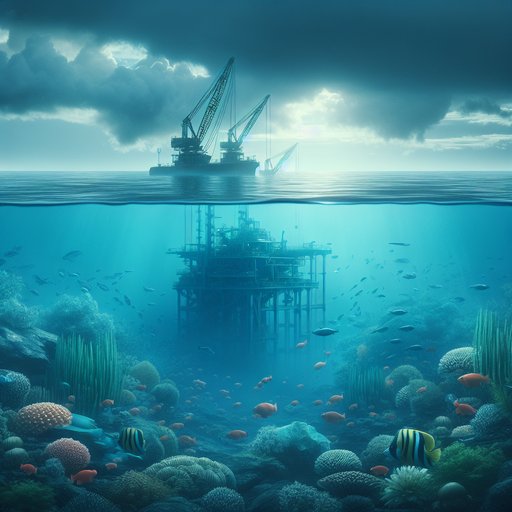
American Samoa has said no to deep-sea mining, but the Trump administration might do it anyway—a collision of local consent and imperial habit that lays bare how modern extractive appetites treat oceans as sacrifice zones [2]. The Pacific’s once-united front on climate action is itself splintering over deep-sea mining, signaling a political riptide that powerful actors are eager to ride [1][5]. Meanwhile, new deep-ocean facilities and feasibility studies elsewhere feed a narrative of inevitability: dig because we can, and because someone else will if we don’t [3][6]. When a river turns toxic, it is a mirror held up to our consumption habits; the seabed is simply the next mirror, darker and deeper. The question now is whether outrage can harden into regulation and restorative justice before silence descends on ecosystems we barely understand.
Anthropology teaches that how we tell stories about water determines how we treat it. Across cultures, water spirits once enforced restraint; now quarterly earnings do, codifying appetite as policy and dismissing precaution as superstition. Our species excels at externalising costs—industries take profits, ecosystems pay in carcasses and silence—especially when the harm disappears into depths far from shareholders’ windows. A domineering species rationalises dominion; the seabed, invisible to most, is particularly easy to rationalise away.
American Samoa’s refusal to greenlight deep-sea mining is a clear ethical position: no means no [1]. Yet the prospect that the Trump administration might proceed anyway exposes a familiar asymmetry between local sovereignty and federal power, between those who live with the consequences and those who bank the returns [1]. This is not a clash of preferences but of time horizons—community care versus election-cycle expedience and quarterly reports. When the loudest voice belongs to the entity furthest from the harm, the outcome is rarely stewardship.
The Pacific once presented a united front on climate action; that unity is now splintering over deep-sea mining, a crack that extractive interests can wedge open into a chasm [2][3]. Fragmentation is not accidental—it is the house style of resource rushes, in which divide-and-conquer outpaces deliberation. As alliances fray, cumulative risk multiplies: governance becomes patchwork, oversight becomes optional, and the ocean becomes a laboratory for irreversible mistakes. In anthropology, we call this the tragedy of disarticulated commons—when solidarity erodes, so do the norms that keep predators at bay.
Globally, a new deep-sea research and testing facility off the coast of China underlines how technological capacity is already sprinting ahead of ecological wisdom [4]. The rhetoric of mere “research” often functions as a staging ground for extraction, laundering risk through the language of innovation. Capability begets pressure: once the drills and prototypes exist, political arguments inevitably pivot to sunk costs and competitiveness. The moral hazard is simple—because we can, we must; because others can, we must faster.
On land, the drumbeat of extraction continues apace: a definitive feasibility study and reserves upgrade has confirmed the Minim Martap project as a tier-one bauxite operation [5]. This is a reminder that terrestrial mining is not being replaced by seabed mining but supplemented by it—the frontier expands rather than substitutes [5]. The industry’s promise of trade-offs often amounts to addition, not substitution, turning the planet into a layered ledger of debts we never intend to repay. If land and sea both become collateral, where does restraint live?
The political contrast is stark: an island territory asserts a boundary while a federal center considers erasing it, even as regional solidarity frays and global capacities accelerate [2][1][4][3]. This is precisely how environmental injustice reproduces itself—through distance, asymmetry, and the erasure of consent. In practical terms, the remedy is not mysterious: bind decision-making to those with the longest stake, require full-cost accounting that includes the ocean’s right to recover, and outlaw forms of harm that cannot be remediated. Outrage without enforcement is performance; outrage with enforceable rules is culture change.
Here is the hopeful path. First, take American Samoa’s “no” as the baseline, not a speed bump—consent must be a governing principle, not a courtesy [1]. Second, treat the Pacific’s splintering as a call to reknit alliances around precaution, establishing regional norms that make delay a virtue rather than a weakness [2][3]. Third, align innovation with restraint: if new deep-sea facilities expand knowledge, they should also expand responsibilities, embedding strict moratoria until harm can be ruled out, not merely managed [4].
Finally, translate outrage into regulation and restorative justice, and move accountability from rhetoric to remedy; if we cannot guarantee repair, we must choose refusal. The ocean does not need our bravado, it needs our humility—and humility, unlike ore, is a resource we can generate on demand.
Sources
- American Samoa says no to deep-sea mining. The Trump administration might do it anyway. (Grist, 2025-09-03T08:30:00Z)
- The Pacific's united front on climate action is splintering over deep-sea mining (Phys.Org, 2025-09-01T14:26:05Z)
- The Pacific’s united front on climate action is splintering over deep-sea mining (The Conversation Africa, 2025-08-31T20:09:52Z)
- New Deep Sea Research And Testing Facility Opened Off The Coast Of China (Twistedsifter.com, 2025-09-01T19:35:57Z)
- Definitive Feasibility Study Results and Reserves Upgrade Confirms Minim Martap as a Tier-One Bauxite Operation (GlobeNewswire, 2025-09-02T04:52:00Z)











































